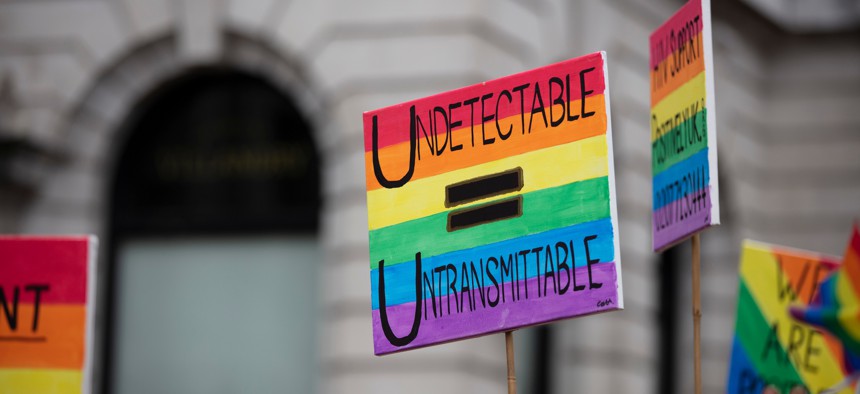COVID-19 may delay New York’s goal to end HIV/AIDS epidemic

A pride-themed sign which says undetectable = untrasmittable Ink Drop / Shutterstock
As of last fall, New York state was on track to end the AIDS epidemic by the end of 2020.
But the COVID-19 pandemic has thrown a wrench into those efforts, especially as lockdowns early on limited access to sexual health services and HIV testing, according to a new policy brief from the nonprofit health plan Amida Care.
Only one-fourth of clinics in New York City offered HIV testing as of April 1, according to one survey. And outreach efforts to connect with people at higher risk of HIV at bars, nightclubs and other locations have also been shut down.
Some efforts have been made to continue offering testing and care in new ways despite the pandemic. New York City’s health department started a home delivery program to distribute condoms, HIV at-home test kits and other products. It also launched a new hotline to offer telemedicine services to help people manage sexually transmitted infections.
But Amida Care’s report outlines other policy priorities to help New York reach its goal of ending the AIDS epidemic. This includes increasing the number of Medicaid beneficiaries using PrEP, a daily pill that can lower a user’s chances of getting HIV, the report says. It also means increasing efforts to screen and test populations at elevated risk of contracting HIV, such as transgender people and men who have sex with men.
“Further, inequities in viral suppression were also apparent, with fewer transgender people, Black and Latinx people, young people, and people with a history of injection drug use achieving viral suppression,” it reads. “To end the epidemic, these communities must be prioritized with outreach, prevention, testing and treatment services.”